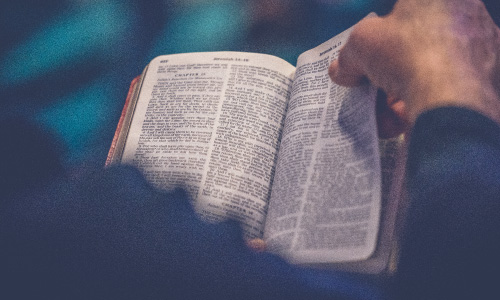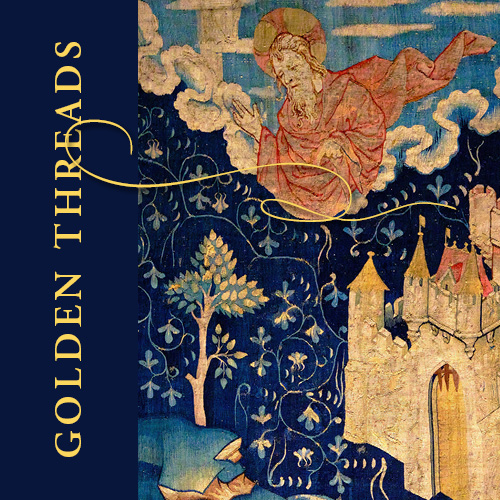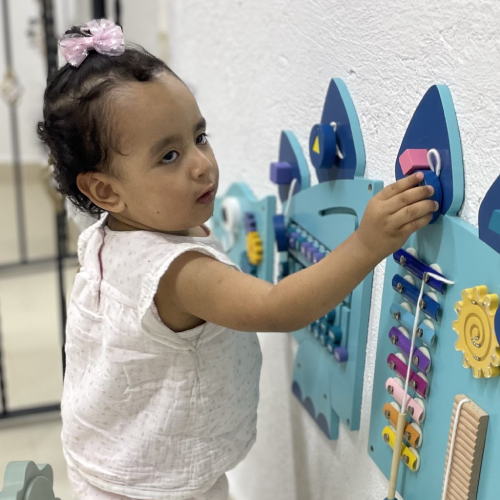Day 23: Covenant Promises to Israel in Bondage
Posted on: March 31, 2025
by: Gerrit Dawson, Senior Pastor
by: Gerrit Dawson, Senior Pastor
Every day, pray aloud worshipfully this golden thread that weaves through the entire tapestry of God’s intent for us.
Behold, the days are coming, declares the LORD,
when I will make a new covenant with the
house of Israel. . . .
I will put my law within them,
and I will write it on their hearts.
And I will be their God, and they shall be my people.
They shall all know me, from the least of them
to the greatest. . . .
For I will forgive their iniquity, and I will
remember their sin no more.
(Jeremiah 31:31, 33-34)
Daily Scripture
Exodus 6:2-8
God spoke to Moses and said to him, “I am the LORD. I appeared to Abraham, to Isaac, and to Jacob, as God Almighty, but by my name the LORD I did not make myself known to them. I also established my covenant with them to give them the land of Canaan, the land in which they lived as sojourners. Moreover, I have heard the groaning of the people of Israel whom the Egyptians hold as slaves, and I have remembered my covenant. Say therefore to the people of Israel, I am the LORD, and I will bring you out from under the burdens of the Egyptians, and I will deliver you from slavery to them, and I will redeem you with an outstretched arm and with great acts of judgment. I will take you to be my people, and I will be your God, and you shall know that I am the LORD your God, who has brought you out from under the burdens of the Egyptians. I will bring you into the land that I swore to give to Abraham, to Isaac, and to Jacob. I will give it to you for a possession. I am the LORD.”
Picking Up the Thread

Most of us reading this Lenten guide will be at least a generation removed from feeling like we don’t belong in this country. Our families have been in this country long enough that we are citizens and claim the heritage and history of the nation as our own.
But perhaps we can remember stories of grandparents who had to learn a new language to fit in among people who may well have been suspicious of them. With a bit of imagination, we can feel for the Syrians uprooted from their homelands by ISIS spending months in transit and trying to start life anew among ethnic groups who treat them like “the others” rather than “our own.” We can imagine what it’s like for a nine-year-old Hispanic boy who entered our country last spring and is now in school struggling to learn English and overhearing the other children whisper, “He’s an illegal.”
In fact, such imagining reminds us of what it’s like to be part of the group of kids that neither team wants to select for kickball. What it’s like to have to introduce ourselves as unemployed, or alcoholic or left by a spouse. What it’s like to get the letter suggesting we reconsider our academic career at this institution. Or what it’s like to be ghosted by a recruiter shortly after we submitted a full resume.
The people of God spent centuries being cheap, disposable labor to the Egyptians. Their LORD was mocked. The covenant promises to Abraham seemed more and more remote. Their future promised only more grinding misery. For years, they cried out to God. Although he always heard them, at last he answered them by raising up Moses to be the leader through whom he would free his people.
To this day, the annual Passover celebration commemorates this deliverance. The sacred feast includes four cups of wine attached to the LORD’s four-fold promise in Exodus 6:6-8. The first three cups concern freedom: 1) I will bring you out from the Egyptians, 2) I will deliver you from slavery, and 3) I will redeem you with great acts of judgment. But the fourth cup references the long-promised future of their own land and God’s abiding presence: 4) I will take you to be my people, and I will be your God. The Jerusalem Talmud version translates to, “I will marry them taking them as my people and I will be their God.” This is the covenant relationship so close that it requires an intimate picture of enduring marriage to describe it.
Stitching It In
We don’t know why God allowed his people to languish for 400 years in slavery, but we do stand in wonder that the most life-giving ethics on the face of the earth came through a people who endured generations of slavery. Scriptures’ teaching about what makes for flourishing life did not come from comfortable or pampered people, but from those who suffered in centuries of servitude before decades of wilderness wanderings. The huge faith and long endurance required of Abraham gets multiplied for God’s people in the Egyptian years. How can this be God’s favor?
Here we come up against a bracing Biblical reality. Chosenness means serious service, not privileged comfort. The election of a people by God calls them to be a prototype of what he intends for the world. There is no escaping mortality nor the struggles that come from making our way through hardship and toil in a world that fell through sin. The LORD takes his people through the same hardships that everyone else endures, sometimes even worse ones. But through his people, Christ shows how love, growth and even healing can come out of suffering. He shows through us, especially in our hard times, how he is keeping his promise to make all things new. Until Christ returns to set everything right, we remain sojourners in this world, depending on God for daily bread at every level. We are pilgrims on a mission to show forth God’s love for his lost world, especially through the way we deal with life’s struggles.
God calls us to abiding trust and, to use the title of Eugene Peterson’s classic book, “a long obedience in the same direction.” (Eugene Peterson, A Long Obedience in the Same Direction: Discipleship in an Instant Society. Downers Grove, IL: InterVarsity Press, 1980). The blessing that comes to such faith is a mysteriously satisfying intimacy with Christ Jesus. The witness of those who have found it can be simply stated: “I wouldn’t wish these hardships even on my worst enemy. But neither would I trade them for anything the world can offer. So precious is the closeness to Jesus I experience.”
Praying Along the Pattern
How I want to live in the circle of your grace.
Inside the womb of your covenant love,
I find safety even when days are chaotic.
Within the magnetic field of your promise,
I find security even when everything is changing.
In the freedom of your service,
I find vibrant creativity released.
My mind opens to higher plains.
Even menial tasks get charged with purpose.
I cannot fall an inch outside your oath,
Grounded in your own eternal character.
You have spoken to my soul,
“You are mine.”
You have sworn before the heavenly powers,
“I am your God, your God.
Your faithful, loving Father,
Your savior still in flesh and blood,
The very Spirit within your spirit.”
How I find the fullness of life
When I know I am held as a beloved child
In your everlasting arms.
Posted in:
Lent




 Close
Close












